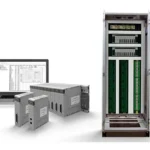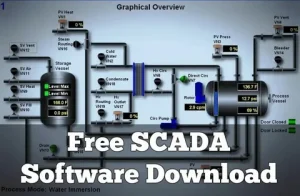In the ever-evolving landscape of electrical engineering and automation, precision, efficiency, and innovation are paramount. EPLAN software, a leading solution in the field, stands as a beacon of technological advancement. In this comprehensive guide, we will delve into the world of EPLAN, exploring its features, benefits, and the transformative impact it has on electrical engineering projects.
Understanding EPLAN Software
EPLAN is a suite of electrical engineering software tools designed to streamline and optimize the entire engineering process. Developed by the EPLAN Software & Service GmbH & Co. KG, this software caters to industries ranging from manufacturing and energy to automotive and beyond. It offers a collaborative platform where electrical engineers, designers, and automation experts can work together seamlessly, ensuring accuracy and efficiency in every project.
Key Components of EPLAN Software
- EPLAN Electric P8: At the heart of the EPLAN suite is EPLAN Electric P8. This is the flagship software for electrical engineering, offering a comprehensive range of tools for electrical circuit design, documentation, and project management. Its intuitive interface simplifies the complex task of electrical design, allowing engineers to create error-free schematics quickly.
- EPLAN Pro Panel: Pro Panel extends EPLAN Electric P8’s capabilities into 3D panel design. It enables engineers to visualize and design electrical cabinets and control panels in a 3D environment, ensuring that all components fit perfectly. This reduces the chances of errors during the assembly phase.
- EPLAN Fluid: For engineers working with fluid power systems, EPLAN Fluid is the go-to solution. It assists in designing hydraulic and pneumatic schematics, optimizing fluid power designs for efficiency and reliability.
- EPLAN Preplanning: Before diving into the detailed design phase, EPLAN Preplanning helps engineers create preliminary sketches and layouts, streamlining the initial planning stages.
- EPLAN Harness proD: This software is dedicated to the design and documentation of cable harnesses. It simplifies the process of creating complex wire harnesses while ensuring compliance with industry standards.
- EPLAN Cogineer: Cogineer brings automation to the forefront by allowing engineers to generate electrical and fluid power schematics automatically based on predefined rules and templates. This reduces design time significantly.
- EPLAN eVIEW: Collaboration is key in modern engineering projects, and EPLAN eVIEW facilitates it by providing a web-based platform for project documentation access. Stakeholders can view and comment on projects from anywhere, enhancing communication and decision-making.
Benefits of EPLAN Software
1. Improved Efficiency
EPLAN software drastically reduces the time and effort required for electrical engineering tasks. Automation features, such as the automatic generation of schematics in EPLAN Cogineer, eliminate repetitive work, allowing engineers to focus on more critical aspects of design.
2. Error Reduction
Human errors can have costly consequences in electrical engineering. EPLAN’s validation and consistency checks help catch mistakes early in the design process, reducing the likelihood of errors in the final product.
3. Collaboration
In today’s interconnected world, collaboration is vital. EPLAN provides a platform where multiple team members can work on a project simultaneously, promoting real-time collaboration and efficient communication.
4. Standardization
EPLAN enforces design standardization, ensuring that all projects adhere to industry standards and best practices. This consistency leads to higher-quality designs and reduces the risk of non-compliance.
5. Cost Savings
Efficiency gains and error reduction translate into substantial cost savings over the course of a project. Additionally, EPLAN’s project management tools help control budgets and timelines effectively.
6. Scalability
Whether you’re working on a small-scale project or a massive industrial installation, EPLAN’s scalability ensures that the software can adapt to the size and complexity of your project.
Industries Benefiting from EPLAN
EPLAN software finds applications across a wide range of industries due to its versatility and efficiency. Some notable sectors that have benefited from EPLAN include:
1. Manufacturing
In manufacturing, EPLAN aids in designing and automating production lines, ensuring the seamless integration of electrical components into machinery.
2. Energy
Power generation and distribution projects benefit from EPLAN’s precision and error reduction capabilities, critical in maintaining safety and reliability in energy infrastructure.
3. Automotive
The automotive industry relies on EPLAN for designing electrical systems in vehicles, making cars more efficient, reliable, and connected.
4. Aerospace
EPLAN’s adherence to stringent standards and precision design features are invaluable in aerospace engineering, where safety and reliability are paramount.
5. Building Automation
In building automation, EPLAN helps design the electrical systems that control lighting, HVAC, and security, enhancing energy efficiency and occupant comfort.
6. Oil and Gas
For oil and gas projects, EPLAN ensures the reliability and safety of electrical systems in harsh and demanding environments.
Case Studies: Real-World Impact of EPLAN
To truly grasp the transformative power of EPLAN, let’s explore a couple of real-world case studies where the software made a substantial difference.
Case Study 1: Automotive Manufacturing
A major automotive manufacturer implemented EPLAN software into their design process. The result was a 30% reduction in design time, a 20% decrease in design errors, and a 15% increase in production efficiency. This not only saved time and resources but also improved the overall quality of the vehicles produced.
Case Study 2: Energy Sector
In a critical energy infrastructure project, EPLAN was used to design the electrical systems. Thanks to EPLAN’s accuracy and error reduction features, the project was completed three months ahead of schedule, resulting in significant cost savings and increased energy production capacity.
The Future of EPLAN
As technology continues to advance, EPLAN evolves alongside it. Predictive analytics, augmented reality integration, and enhanced automation features are just a glimpse of what the future holds for EPLAN. The software will continue to empower engineers to push the boundaries of innovation while ensuring reliability and precision in their designs.
Conclusion
EPLAN software stands as a beacon of innovation in the field of electrical engineering. Its ability to streamline processes, reduce errors, and facilitate collaboration makes it an indispensable tool for industries worldwide. As we move into an era of increasing complexity and connectivity, EPLAN’s role in shaping the future of electrical engineering is set to become even more pivotal. Embracing EPLAN is not just about adopting software; it’s about embracing efficiency, precision, and the limitless possibilities of technology in engineering.








